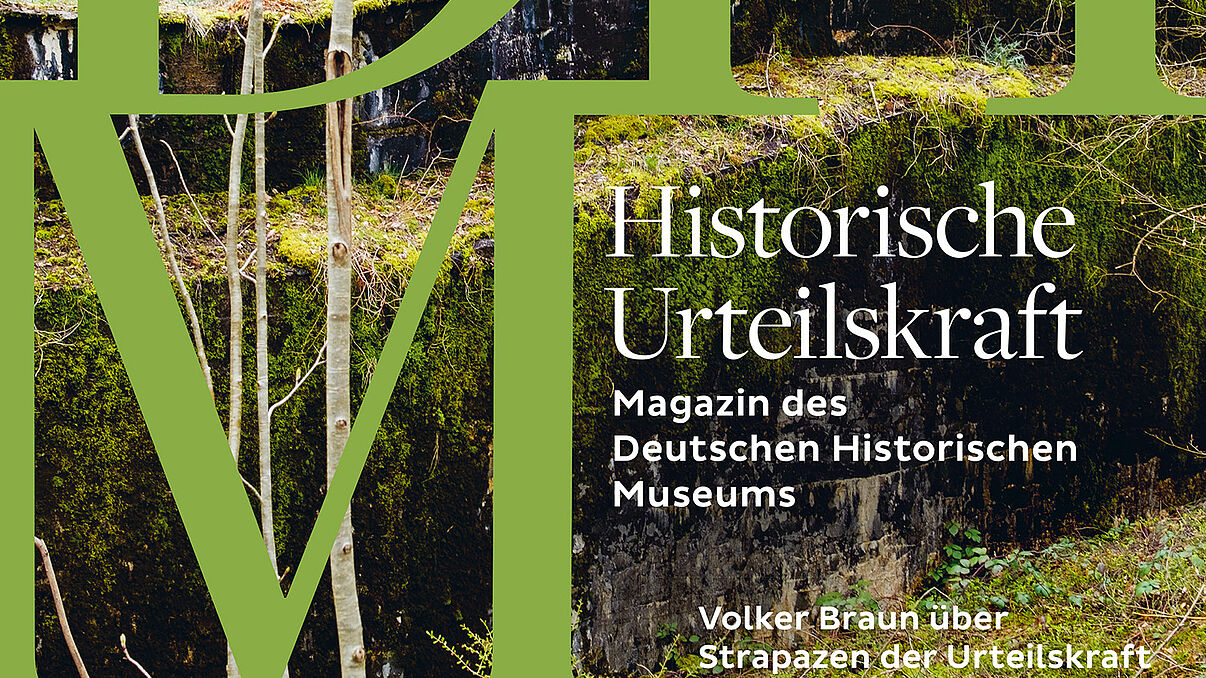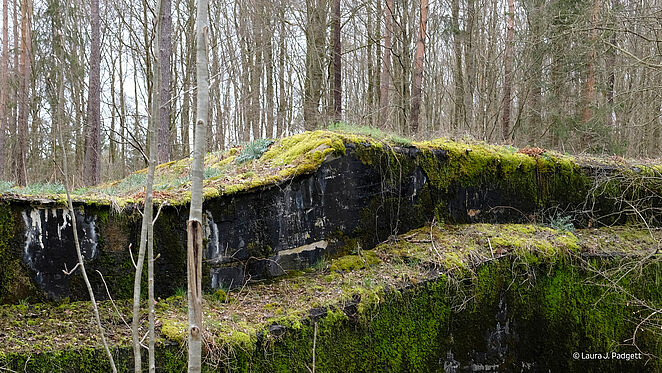
6th symposium in the “Historical Judgement” series
Nature and German History
Faith – Biology – Power
12 July 2024

Deutsches Historisches Museum
Pei Building
The sixth symposium in the Historical Judgement series explores the concept and meaning of nature in German history at the intersection of faith, biology, and power. The symposium spans nine centuries. In three keynote addresses, Annette Kehnel, Jutta Nowosadtko, and Frank Uekötter will provide an overview of humanity’s changing relations with nature in the Middle Ages, the modern period, and the 19th and 20th centuries. Margot Fassler will discuss Hildegard of Bingen’s concept of viriditas (the greening power of creation) in the 12th century, Hiram Kümper will describe how nature served as a resource for the Hanseatic League, and Viktoria Urmersbach will examine 18th-century perceptions of the forest. Nils Franke will look at nature and ideology under National Socialism, Tilo Wesche will analyse the dialectic of human relations with nature in the work of Max Horkheimer and Theodor W. Adorno, and Stephen Milder will shed light on the beginnings of the anti-nuclear movement in Germany. Finally, Astrid M. Eckert explains the national park programme of the late GDR.
Picture: © Laura J. Padgett
#HistoricalJudgement
The “Historical Judgement” event series is funded by Dr. Christiane and Dr. Nicolaus Weickart.
Participation
Participation is free
Conference Languages: German and English, Simultaneous translation
The symposium will be recorded and made available online later.
Programme
9.00 Registration
9.30 Welcome
The Concept of Nature in German History
Raphael Gross, Stiftung Deutsches Historisches Museum
9.45 Keynote I
The Commons Economy in the Middle Ages
How Our Ancestors Internalised Externalities
Annette Kehnel, Universität Mannheim
Discussion
Moderation: Julia Voss, Stiftung Deutsches Historisches Museum
10.30 Keynote II
Nature in the Early Modern Period
Jutta Nowosadtko, Helmut Schmidt University/University of the Federal Armed Forces Hamburg
Discussion
Moderation: Julia Voss, Stiftung Deutsches Historisches Museum
11.15 Coffee break
11.45 Keynote III
The Nature in the Early Modern Period
Frank Uekötter, Ruhr University Bochum
Discussion
Moderation: Birgit Aschmann, Humboldt-Universität zu Berlin
12.30 Talk
Annette Kehnel, Jutta Nowosadtko and Frank Uekötter
Moderation: Birgit Aschmann, Humboldt-Universität zu Berlin
13.00 Lunch break
14.30 Uhr Short Papers – Faith and Power
The Natural World in Hildegard’s Illuminated Scivias and in Select Liturgical Texts
Margot E. Fassler, University of Notre Dame (USA)
The Hanseatic League and the Northern European Food Trade
Hiram Kümper, University of Mannheim
The Discovery of the Forest around 1800
From a Rational Sustainable View to a Romantic Projection
Viktoria Urmersbach, Stadtteilarchiv Ottensen e.V. Geschichtswerkstatt für Altona
Discussion
Moderation: Ulinka Rublack, Cambridge University (UK)
16.30 Coffee break
17.00 Uhr Short Papers – Biology and Power
Nature and Ideology under National Socialism
Nils Franke, Wissenschaftliches Büro Leipzig
Adorno’s and Horkheimer’s Dialectic of Human Relations with Nature
Tilo Wesche, Carl von Ossietzky University of Oldenburg
The Beginnings of the German Anti-Nuclear Movement in Wyhl
Stephen Milder, University of Groningen and Rachel Carson Center for Environment and Society
The National Park Programme in the Final Months of the GDR
Astrid M. Eckert, Emory University (USA)
Discussion
Moderation: Julia Voss, Stiftung Deutsches Historisches Museum
19.00 Closing Comment
Raphael Gross, Stiftung Deutsches Historisches Museum